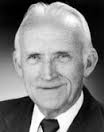Three years ago, some things were the same as they are now, but some were very different. Three years ago, technology was different. (I had a phone and a laptop that were to become obsolete.) Three years ago, there were different sets of responsibilities but the same general spheres of travel. So much is different, but some things are the same. I don’t remember where I was on Christmas Eve day in 2016, but I likely read something in, or about, the scriptures. I did that this morning, too. (At least that much is the same.) In an 80-year-old classic work recommended by a respected scholar, I found this:
“The linkage of baptism with the Spirit is surely pre-Pauline and primitive. ‘In one Spirit,’ says Paul, speaking as though the Spirit were some sort of fluid, ‘were we all baptized . . . and were made to drink of one Spirit’ (1 Cor. xii. 13). ‘But ye were washed . . . in the name of the Lord Jesus Christ and in the spirit of our God.’ Here the gift of the Spirit is associated with baptism.”
– A.M. Hunter, Paul and His Predecessors, 81
And associated it is. The spirit of God is associated with Christian immersion. 80 years later, though, and after centuries of legacy doctrine, the question comes to us: how many deity-entities are depicted in the above passage? Even if we could agree on an answer to that question, could we legitimately say that enumeration was Paul’s concern in 1Corinthians 12? I’d suggest that the capitalization of “Spirit” in five instances above leads readers in a interpretive direction. On the other hand, the expression “spirit of our God,” with its lower-case “s,” seems to imply that spirit, there, means “essence.”
An inbox impetus this morning led me to find that, three years ago to the day, I posted this:
The notion that Trinity is “at the heart of the Christian faith” is overstated, at best. “Trinity” is largely, if not entirely, a humanly devised concept and is not espoused in scripture as such. I prefer to think of God as transcendent and many-faceted, without locking Him in to being “three”—which may be, after all, a mere number suggested for the sake of the limited human mind.
A few questions for those who haven’t ever been challenged to consider Trinitarian formulaism critically:
- Where, precisely, is “trinity” found in scripture?
- Who gave trinity its capital-letter sense/status? When?
- What role does the odd word “Godhead” play in legacy doctrine?
- In scripture, where is the “Holy Spirit” worshipped (or prayed to) as such?
- Why do we feel the need to enumerate the aspects or parts of God rather than worship?
- What is at stake in either upholding or denying the doctrine of the trinity? How might we accept the possibility of trinity without codifying it?
Many will be worshipping Jesus intentionally today and tomorrow. It is unquestionably good to worship the Father, and reasons also abound to give adoring, worshipful attention to Jesus as Teacher, as Example, as Messiah-King, as Lord. We find worship-filled texts in our scriptures. There are also extrabiblical references to devotional practices of early Christians.¹ The earliest references do not appear to bolster trinitarian notions, but they absolutely affirm Jesus as God.
Today, as I think back to three years ago, it almost seems as though I was a different person. Life was entirely different. Sources of joy and pain were not what they are today. Some things about life have changed, and I am very different, but God is the same. Honor to God, then. Gratitude and praise from men and women, with whom He was pleased to dwell. Count me among those who worship the Son and the Father intentionally—today and other days.
B. Casey, 12/24/19
¹ Some, including the recently passed Larry Hurtado, have made it their life’s work to uncover and elucidate Christian origins. Those of us interested in reasoned, supported/supportable faith are indebted to such scholars.


